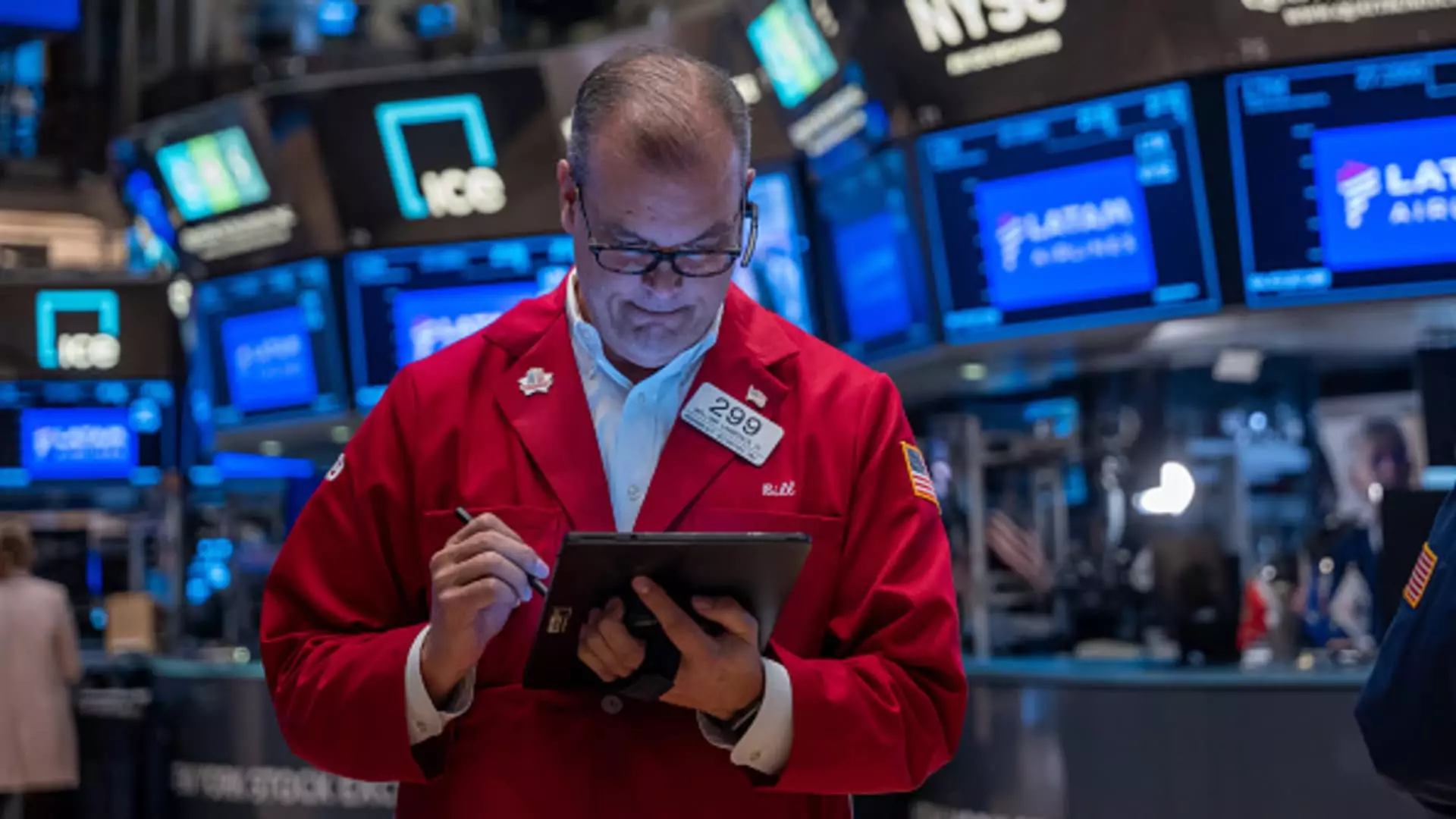The financial world is an ever-shifting environment, where daily happenings can significantly affect long-term outcomes. As we transition from today’s market close to tomorrow’s opening, a keen analysis of recent events paints a vivid picture of volatility and changing investor sentiments. This article delves into the latest trends, focusing on stock movements, treasury yields, and the implications of significant corporate developments.
One of the most scrutinized metrics in the stock market is the yield on Treasury securities, which serves as a barometer for economic sentiment. Recently, the 10-year Treasury yield crept back up above 4.2%, making it the most highly searched ticker on financial news platforms. This metric often indicates how investors view future interest rates, inflation, and overall economic health. In contrast, the two-year Treasury yield stands at 4.03%, while one-month to six-month Treasury bills are seeing yields ranging from 4.26% to 4.78%.
Interestingly, high-yield corporate bond ETFs have also attracted substantial attention, with the iShares iBoxx High Yield Corporate Bond ETF yielding 5.88%, and the SPDR Bloomberg High Yield Bond ETF offering an attractive 6.52%. These figures suggest that even amid volatility in the stock market, fixed-income securities attract investors looking for stable returns.
Stocks in the restaurant sector are currently under the spotlight, notably Starbucks and McDonald’s, which have both faced distinct challenges recently. Starbucks experienced a notable decline of 4% in after-hours trading following the announcement that it will suspend its guidance for fiscal 2025 due to sliding same-store sales. However, the company did enhance its dividend to 61 cents per share, indicating an attempt to maintain investor confidence amid disheartening sales figures.
Meanwhile, McDonald’s faced its own crisis with reports of 49 E. coli cases linked to its food, primarily affecting customers in Colorado and Nebraska. The swift action by McDonald’s, which included ceasing the use of certain food items, demonstrates the importance of corporate responsibility and transparency, especially in an age where reputation can swiftly turn into a company’s greatest asset or liability. The stock fell by about 6% in after-hours trading, underscoring how public health incidents can jeopardize corporate profitability and consumer trust.
On the industrial side, companies like Boeing and Coca-Cola are also under scrutiny as their earnings reports loom. Boeing shares have shown resilience, gaining nearly 5% within a week despite ongoing labor negotiations and concerns over production rates. The company is still 40% below its record high from last December, reflecting the ongoing tumult in the aerospace sector.
Coca-Cola is set to release its quarterly report soon, and its stock has risen by 7% over the past three months. The beverage giant appears to be maintaining consumer interest through effective brand management and strategic product offerings despite broader market challenges.
As for technology, the sector continues to be a focal point for investors. Companies like IBM have seen substantial gains, rising 26% in the past three months while remaining close to recent highs. In contrast, Tesla has shown notable volatility, suffering a 13% downturn over three months as it navigates communication with shareholders and production challenges.
The tech sector is also closely watching upcoming reports from prominent names such as ServiceNow and Knight-Swift, reflecting investor interest in analyzing growth trajectories within a rapidly evolving market. ServiceNow, for instance, is poised to report shortly and has enjoyed a solid climb of 21% over three months, illustrating the strong appetite for digital transformation solutions in corporate environments.
The interplay of treasury yields, corporate performance, and economic confidence is evidence of a dynamic marketplace poised for change. As companies like Starbucks and McDonald’s grapple with the implications of consumer trust and health regulations, the financial landscape will continue to evolve. It is imperative for investors to remain vigilant, adjusting their strategies based on market signals while navigating the complexities of today’s economy. Tomorrow’s financial outlook remains clouded but potent with opportunities for those prepared to act.

